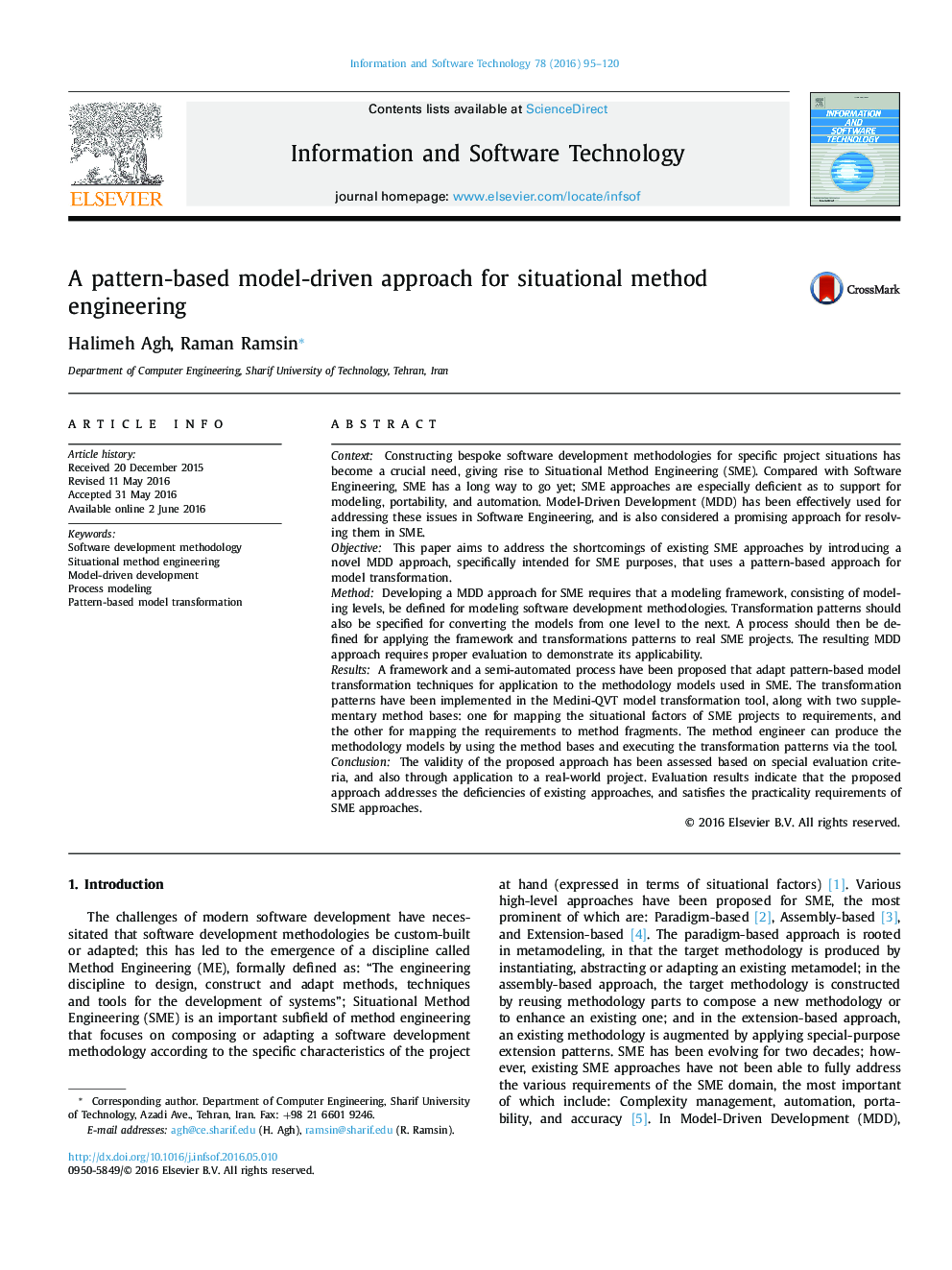| کد مقاله | کد نشریه | سال انتشار | مقاله انگلیسی | نسخه تمام متن |
|---|---|---|---|---|
| 549712 | 1450755 | 2016 | 26 صفحه PDF | دانلود رایگان |
ContextConstructing bespoke software development methodologies for specific project situations has become a crucial need, giving rise to Situational Method Engineering (SME). Compared with Software Engineering, SME has a long way to go yet; SME approaches are especially deficient as to support for modeling, portability, and automation. Model-Driven Development (MDD) has been effectively used for addressing these issues in Software Engineering, and is also considered a promising approach for resolving them in SME.ObjectiveThis paper aims to address the shortcomings of existing SME approaches by introducing a novel MDD approach, specifically intended for SME purposes, that uses a pattern-based approach for model transformation.MethodDeveloping a MDD approach for SME requires that a modeling framework, consisting of modeling levels, be defined for modeling software development methodologies. Transformation patterns should also be specified for converting the models from one level to the next. A process should then be defined for applying the framework and transformations patterns to real SME projects. The resulting MDD approach requires proper evaluation to demonstrate its applicability.ResultsA framework and a semi-automated process have been proposed that adapt pattern-based model transformation techniques for application to the methodology models used in SME. The transformation patterns have been implemented in the Medini-QVT model transformation tool, along with two supplementary method bases: one for mapping the situational factors of SME projects to requirements, and the other for mapping the requirements to method fragments. The method engineer can produce the methodology models by using the method bases and executing the transformation patterns via the tool.ConclusionThe validity of the proposed approach has been assessed based on special evaluation criteria, and also through application to a real-world project. Evaluation results indicate that the proposed approach addresses the deficiencies of existing approaches, and satisfies the practicality requirements of SME approaches.
Journal: Information and Software Technology - Volume 78, October 2016, Pages 95–120
